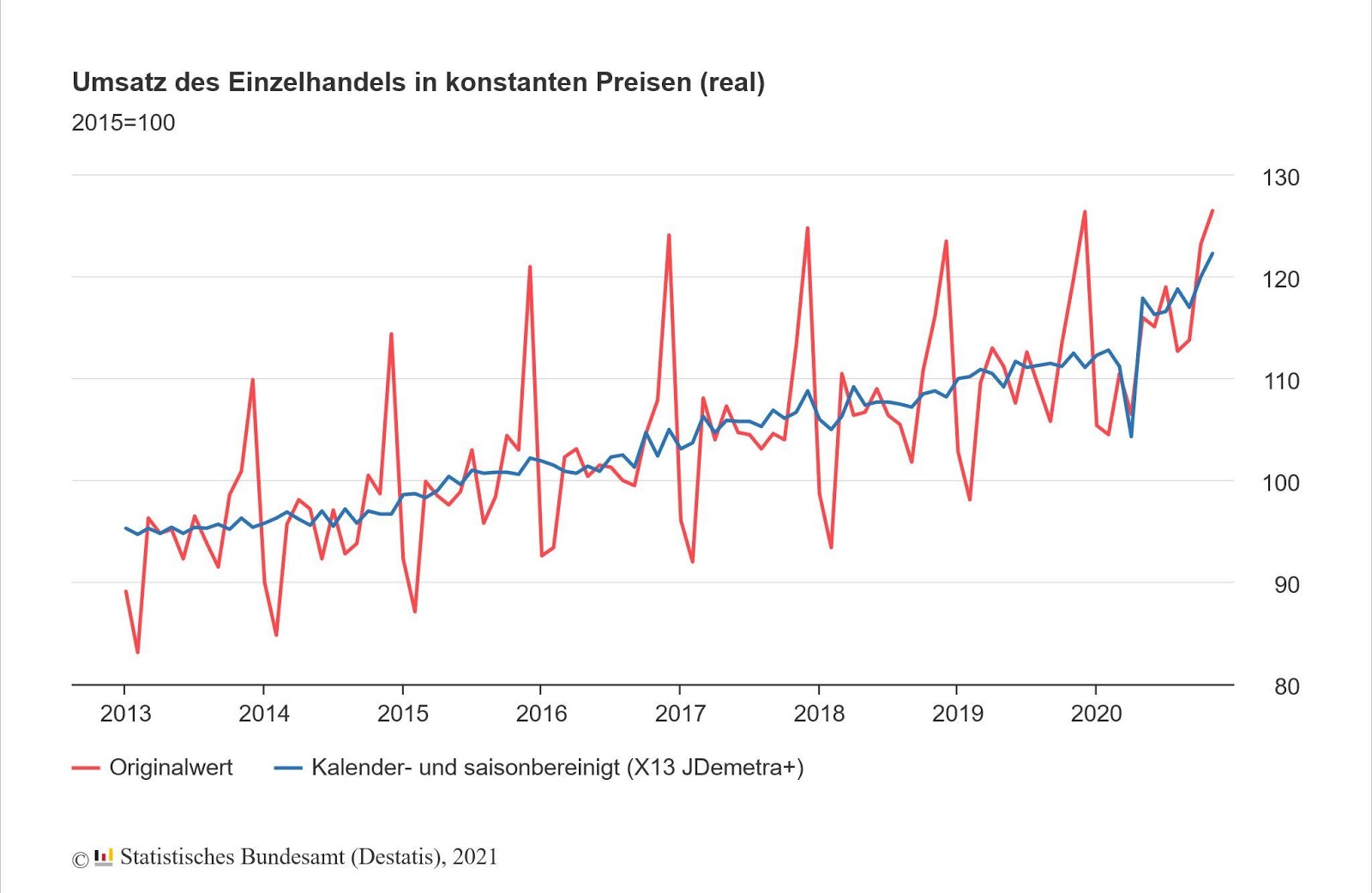Is your business ready for the new EU VAT eCommerce Package? Or are you gonna be caught by traps?
Written by
Editorial TeamPublished on

Have you started an online business during the Corona pandemic and are ready to expand? Very good! But even though they say “the sky is the limit,” watch out for the Value Added Tax (VAT) trap ahead! As of July 1st of this year, an EU-wide sales tax reform for eCommerce goes into effect. According to the EU Commission, this is the “biggest VAT reform since 1993.” The new rules will play an important role for anyone selling their goods online or operating a digital marketplace (https://ec.europa.eu/taxation_customs/news/new-future-proof-vat-rules-e-commerce-made-easy_de).
The focus is on standardizing EU-wide delivery thresholds and moving from the so-called mini-one-stop-shop system to the “one-stop-shop system” (OSS). As usual with reforms decided by politicians, the new VAT rules are supposed to bring massive simplifications for online retailers. And as usual, this is only true to a limited extent. If you don’t want your dream of a new online retail business to quickly turn into a nightmare, it’s important to avoid the “VAT trap”.
eCommerce Boom creates new chances
But first things first. The Corona pandemic has taken its toll on the retail sector. From the start, the industry suffered from lockdown measures by governments not only in Germany but worldwide. Stationary sales fell dramatically. The retail sector is suffering from the Corona crisis. The entire retail sector? Not quite. As always, the crisis also turned out to be an opportunity for innovative and courageous retailers – and a driver of digitization in this business.
As the statistics database Statista shows, eCommerce boomed in 2020: “In June 2020, global retail e-commerce traffic stood at a record 22 billion monthly visits, with demand being exceptionally high for everyday items such as groceries, clothing, but also retail tech items” here“. In the entire year, e-retail sales surpassed 4.2 trillion U.S. dollars worldwide (https://www.statista.com/topics/871/online-shopping/). The effects of the eCommerce boom are also remarkable in Germany. Despite Corona, the retail sector in Germany recorded the biggest increase in sales since 1994, with the heavy losses suffered by many city center retailers being offset by good business in the online, grocery, and furniture sectors, as Stefan Genth, CEO of the German Retail Association (HDE), emphasized.

eCommerce Boom creates new challenges
For those who dared to take the step toward eCommerce – whether because they were planning to do so anyway, or because online retailing proved to be an opportunity to reclaim lost sales – completely new opportunities are now opening up. And so more and more small retailers and corner stores are now building up a second foothold in online retailing.
eCommerce has the potential to be much more than a substitute and compensation for brick-and-mortar retail. This is proven by the latest data from the German Federal Statistical Office: According to these, the Corona year 2020 was the strongest year for retail sales in Germany since 1994! The reason for this is eCommerce. For many smaller retailers, what was once a stopgap is suddenly becoming a model for success. Especially if they can benefit from the assistance and warehousing system of large platforms such as Amazon or eBay.
However, as a result of cross-border business transactions and while exceeding the delivery thresholds, online retailers must register for tax in the countries to which they deliver goods and, if applicable, submit advance VAT returns there. Small and medium-sized traders in particular often do not have the expertise or financial resources to correctly handle tax assessments in a large number of destination countries when trading across borders, for example. At a time when even the national legal framework for one’s own business is not necessarily intuitively comprehensible, this is an additional stress factor.
Beware of the EU delivery threshold regulation reform
A particular hurdle at present is still the delivery threshold regulation that is valid until July 1. This was introduced in 1993 to prevent small and medium-sized companies from becoming liable for value-added tax in every state to which they sell goods. Accordingly, online retailers are allowed to pay tax on their cross-border deliveries within the EU up to a certain limit at their home tax office. Originally, this delivery threshold was to be 100,000 euros across the EU, but in the meantime all EU states except Germany, the Netherlands, and Luxembourg have lowered the delivery threshold to 35,000 euros. With the VAT reform as of July 1, all this will cease to apply. From then on, a single EU-wide delivery threshold of 10,000 euros will apply.
The reform will also open up the One-Stop-Shop system (OSS) to the entire mail-order business. The OSS is a platform made available in Germany by the Federal Central Tax Office. With the system, only a central registration for sales tax in the company’s home country would be necessary. As a result, traders no longer have to register in every country to which they sell. Registration in the country of the company’s headquarters would suffice.
Wrong friend OSS?
What sounds like simplification has pitfalls. Because even before the OSS was introduced, reality overtook the EU reform. This is because only sales from one EU state to consumers in another EU state may be reported via the OSS. Thus, the OSS reform is de facto only a simplification for companies that exclusively deliver from a central warehouse to other EU states. Small merchants who, for example, use the popular Amazon Pan EU or Amazon CEE fulfillment program and thus rely on multiple warehouses in different EU countries, must continue to be reported via local registrations in the individual member states, as Taxdoo founder Matthias Allmendinger explains in the podcast “Thanks for Shopping” by the specialist tax advisor for eCommerce and digital businesses “fynax”
(https://thanksforshopping.podigee.io/2-taxdoos-secret-sauce-zum-erfolg-fur-grenzenlosen-handel-mit-matthias-allmendinger).

So the EU reform is already behind its time even before it is introduced. And it brings dangers for the many small merchants who successfully ventured into eCommerce during the Corona crisis. This is where good, modern advice is needed. After all, anyone who has built up a successful online business as a retailer and thus escaped Corona-related insolvency should not run the risk of losing their money to tax disputes.
Digitization is not a one-way street – Why online retailers deserve specialized tax consultants
For retailers, eCommerce offers the opportunity to tap into new, international sales markets and streamline processes at the same time. But they usually have to pay far more attention to tax issues than stationary retailers. And that has its pitfalls: because even now, many traditional tax consultants are overwhelmed by the realities of eCommerce. Although the market is constantly changing and the digitization of commerce is making progress almost daily, tax consultants specializing in the digitization of the industry are few
This is because it requires Knowledge, especially while working with compliance platforms such as Taxdoo, which specializes in automating services related to sales tax and financial accounting. Knowledge that cannot be acquired overnight but needs time and money that must be invested. Law firms must always be up to date and be able to master the flood of data that comes with online trading – this is almost impossible for law firms that do not explicitly specialize in eCommerce. As a result, uncertainty and workload increase on both sides – for retailers and tax consultants.
Specialization and individualization: Why the best is just good enough
With the eCommerce boom and Corona, even more, stores are taking the step into online retailing. What started as an alternative to brick-and-mortar retail has become a promising growth step into the international market for many. As a result, online retailing is not only compensating for the losses incurred by the retail sector but is also driving the entire industry forward. To ensure that the complex tax regulations in the eCommerce sector do not hinder further eCommerce growth, there is a need for modern and specialized tax consulting services that offer the entire tax processing of their trading activities completely digitally via one platform. Some players in the tax consulting sector have recognized the signs of the times.
For example, the largest provider of online tax advice in Germany, Felix1, has created the new brand fynax. Felix1 and fynax are driven by Germany’s largest tax consulting group, ETL. Fynax consists of highly specialized tax consultants and accountants and promises tax advice with a one-stop-shop service for e-commerce and digital businesses. It relies on an algorithm to match eCommerce clients with the right firm for them from the ETL group.
Conclusion
Specialized commerce needs specialized advice to focus on core business. Especially in light of the upcoming EU VAT reform. And each market needs its own type of tax advice. While it can make perfect sense for stationary retail in the pedestrian zone to rely on the decades-old connection to the tax office around the corner, digital eCommerce requires digital tax advice at the cutting edge.
Already, most merchants who have ventured into the digital marketplace take it for granted that their tax activities will be handled through a digital platform that understands and applies the new tools and software. As eCommerce is reinventing itself almost daily, it is important to have a partner as a tax advisor at your side who has both the know-how and the resources to stay up to date.

Nadja Müller – Head of E-Commerce and tax advisor in fynax


